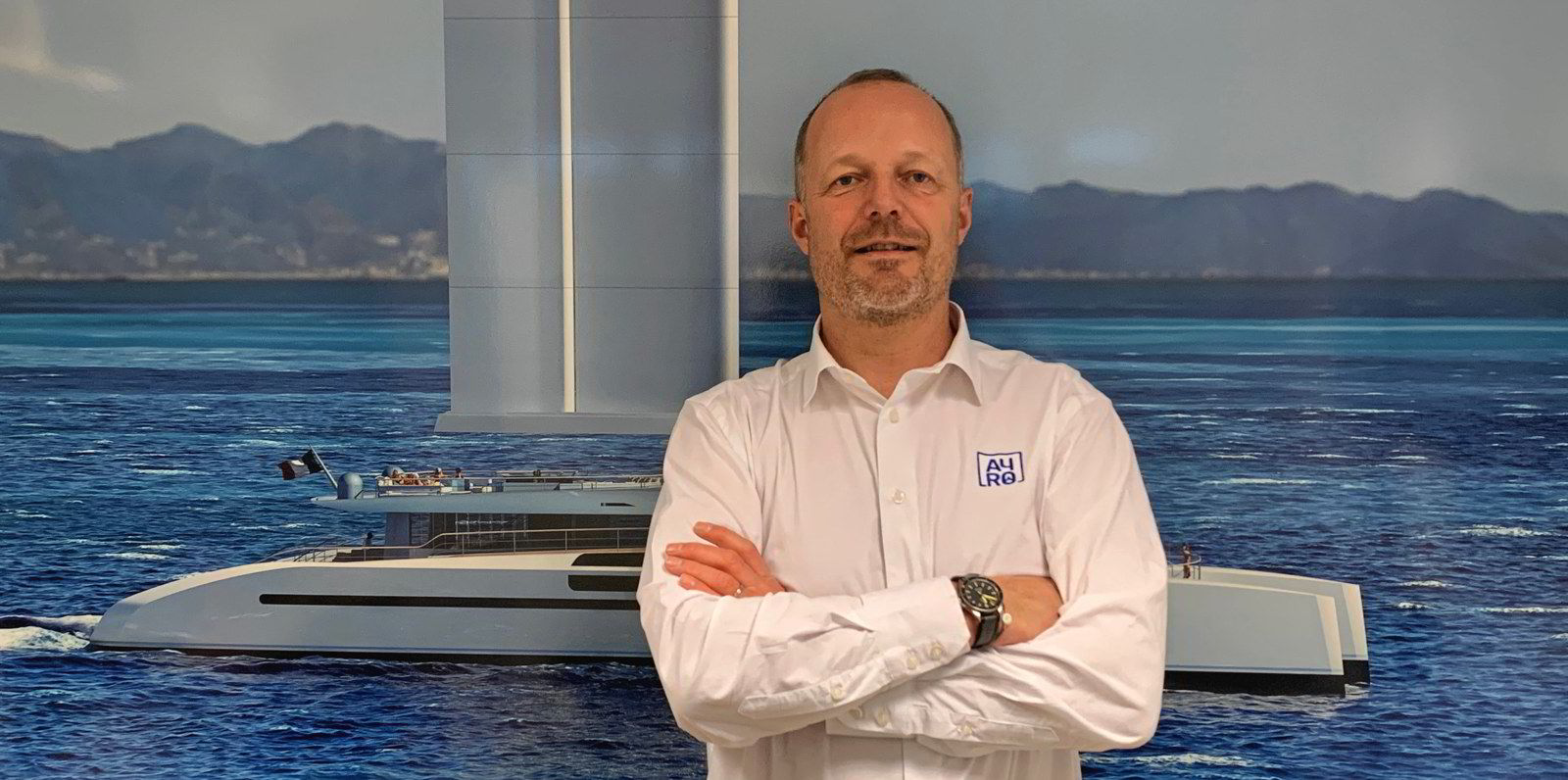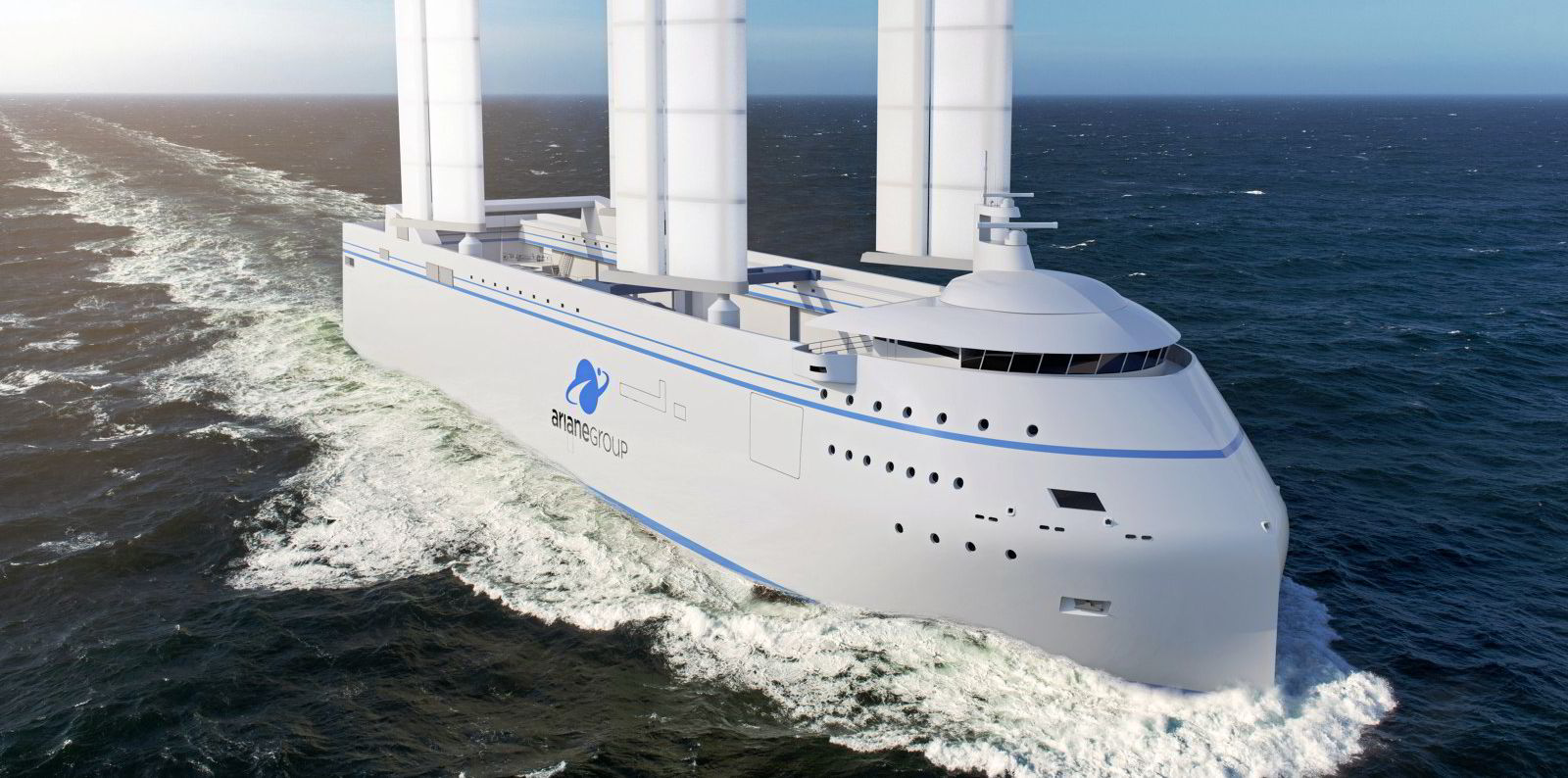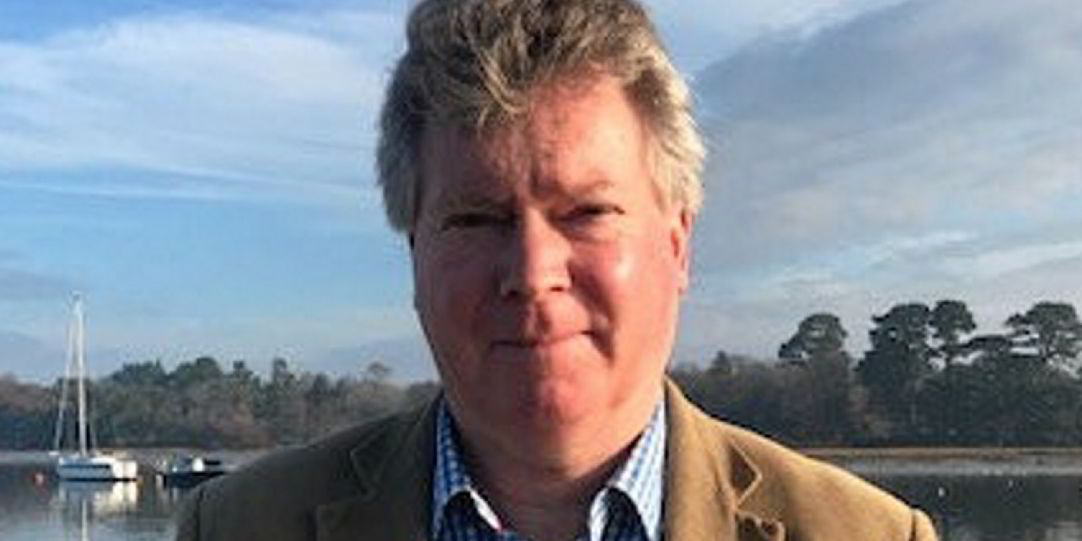French wind propulsion firm AYRO — which is supplying Oceanwings sails to cut fuel use by up to 35% on a ro-ro vessel that will transport Ariane 6 rocket parts — is taking a flexible design route compared with its rigid sail rivals.
The company has developed polyvinyl chloride (PVC) material sails that can be furled and reefed in similar ways to traditional sails but provide the aerodynamic benefits of wings at a much lighter weight.
AYRO has now raised €10.5m ($12.3m) from investors to build the wings at a new factory in Caen and take them to market.
Four of the 33-metre-high Oceanwings will be constructed for the 121-metre-long Canopee, which is being built by Neptune Shipyard for delivery to aerospace player ArianeGroup in November 2022.
Also this year, AYRO has developed a design for a 2,500-teu containership with integrated and retractable sails that has received approval in principle from Bureau Veritas.
Fitting rigid sails to containerships has been a problem for wing designers due to the inability to install them on decks and the need to get them out of the way when boxes are being loaded or unloaded.
Chief executive Ludovic Gerard told TradeWinds: "We wanted to show that we can design a containership that can incorporate our wings."
That is not surprising as Gerard, a trained naval engineer, worked for CMA CGM for 21 years.
Gerard rose to become newbuilding director and then executive vice president of CMA Ships, CMA CGM's in-house ship management firm responsible for 180 vessels, before setting up his Alwena Shipping consultancy in 2018 and joining AYRO last year.
AYRO was set up by Marc Van Peteghem, co-founder of French naval architect VPLP Design, as president alongside Nicolas Sdez, the chief technology officer after the racing yachts specialist designed a wingsail for BMW Oracle Racing, winner of the America’s Cup events in 2010 and 2013.
Peteghem felt the design could be developed for commercial cargoships, and after prototype testing, two wings were fitted to the catamaran Energy Observer.
The Energy Observer has now been sailing round the world for two years testing zero-emission technologies, including hydrogen propulsion and solar panels. Gerard said it has provided 9,000 hours of sailing experience for the Oceanwings.
The Canopee will be fitted with 313-square-metre Oceanwings, costing nearly €5m, including an automated operating system and weather routing software. Built with composite materials that should have a lifespan of 25 years, they weigh just 20 tonnes, whereas rigid sail wings might weigh 200 tonnes.
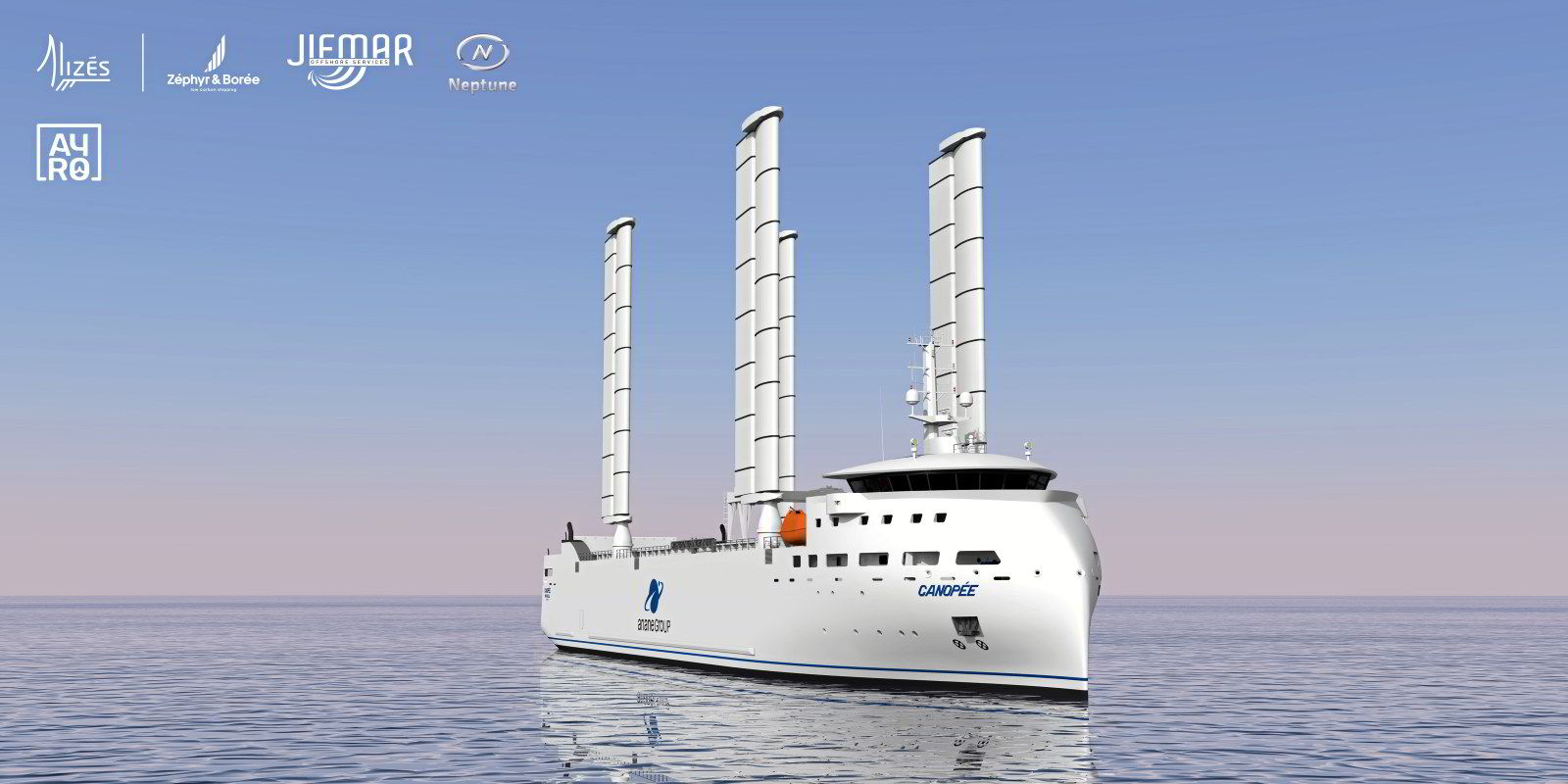
A ribbed design similar to gliders' wings allows industrial PVC material sails to be raised and lowered, while the mast rotates 360 degrees on swing gear similar to that used for a ship's crane.
Two flaps — front and rear — are automatically adjusted for the angle of wind and power. AYRO claims Oceanwings are usable in up to 80 knots of apparent wind speed and can endure up to 140 knots.
Gerard said the sail fabric currently has a five-year lifespan to fit in with dry-docking, but AYRO is working on extending their durability to 10 years. He said full replacement is possible within a day and individual ribbed panels are replaceable.
Both the Canopee and 2,500-teu boxship designs incorporate a forward-positioned bridge to avoid issues with visibility.
The Canopee, which will operate between Europe and French Guiana, will also be equipped with dual-fuel engines running on LNG and diesel plus solar panels while the Trade Wings 2,500-teu boxship design would have an LNG-electric propulsion system plus pods for manoeuvring.
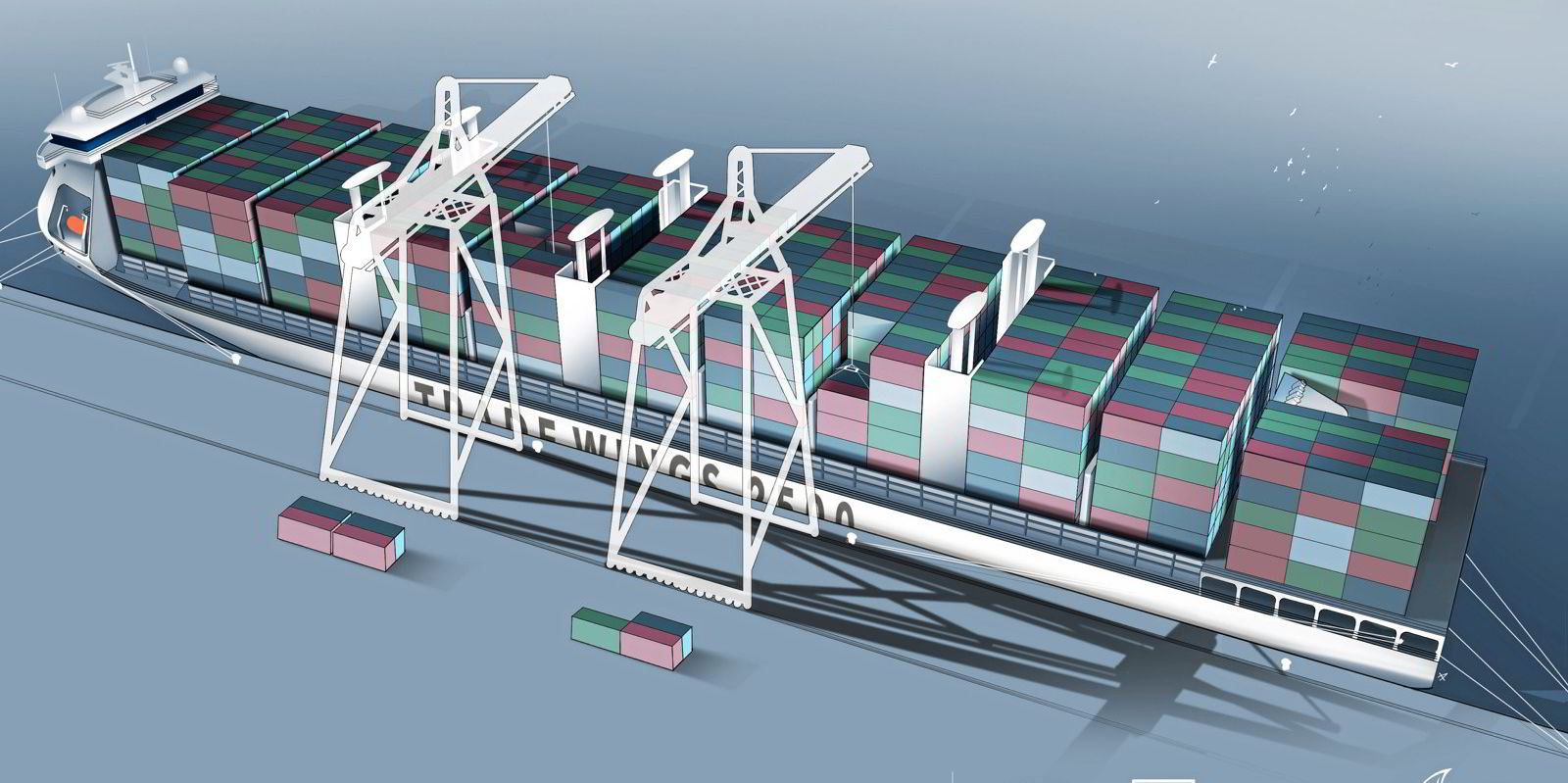
The 32,500-dwt hatchless containership, whose development also included the Shanghai Merchant Ship Design & Research Institute, would be suitable for shortsea or feeder operations, but could also operate on transatlantic trades.
On a typical 4,000-nautical-mile (7,408-km) Atlantic route, AYRO claimed the containership fitted with a four-stroke engine ready for upgrade to lower-carbon fuels could save an average 35% of CO2-equivalent emissions compared with a conventional design with a two-stroke engine. The sails would provide 57% of the savings and the engine would deliver the remaining 43%.
The new investment will help AYRO respond to growing demand.
"Since June, we see requests from shipowners changing, from some who were curious or looking to greenwash, to more and more really wanting to reduce the EEXI [Energy Efficiency Existing Ship Index] or CII [Carbon Intensity Indicator] of their fleets and comply with future regulations," Gerard said.
New investors US-based decarbonisation financier Ocean Zero and French equity investment group Bpifrance plus blue economy stimulation fund Mer Invest are the backers putting €10.5m of capital into AYRO.
The funds will be used to boost development and industrialisation of Marc Van Peteghem-led AYRO's Oceanwings and start up its new production facility in Caen-Blainville, Normandy.
'Game changers'
Stephen Petranek, operating partner of lead investor Ocean Zero, said TED Conferences creator Chris Anderson created Ocean Zero with the aim of identifying and supporting innovative start-ups that have the potential to be "game changers" and cut greenhouse gas emissions.
"AYRO is exactly such a company," he added.
"I have long admired Marc Van Peteghem’s brilliance in combining old-fashioned ideas, like wind propulsion, with sophisticated aerodynamics and hydrodynamics, not to mention brilliant software."
Van Peteghem, co-founder and president of AYRO, said the company had found a unique team of investors who "are passionate about what we do and have a deep understanding of our sector".
The factory is close to the coast allowing for easy transport of the sails into the European market, and the company also plans to develop production facilities in Asia to be close to the major shipbuilding markets.
French investors
Mer Invest general manager Philippe Renaudin said it was essential that the fund for western France, set up by Banque Populaire Grand Ouest group, support a "clean game changer" in maritime transport.
Bpifrance's investments are used to finance companies with credit, collateral and equity as well as to help their export activity.
"Recent regulations and the evolution of stakeholder awareness on environment issues [mean] the market for hybrid wind propulsion is going to take off very soon,” said its investment director Jason Bigeard.
